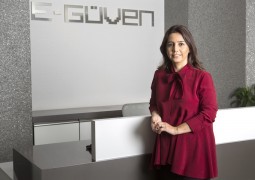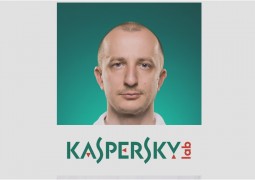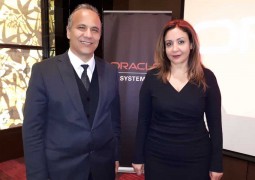Mobile App Testing – Dan Cuellar @Appium
by 0

“In my opinion, it is smart, to begin with, something as a base and improve. It makes you less likely to be successful to start from scratch.”

I had the chance to talk to the founder of Appium Dan Cuellar at the TestIstanbul 2016 Event.
Appium is an implementation of Selenium JSON (JavaScript Object Notation) -wire protocol that controls native and hybrid iOS and Android application and it is the most popular open source mobile functional testing framework.
Appium’ s philosophy is to use standardized and sanctioned APIs and techniques, provide the opportunity to code in the language of users’ choice (Java, C#, Python, Ruby, Objective-C, node.js, PHP and more). The product’s strong part is to be open source and free. Appium is similar to Selenium, which is a test platform for web based applications. Appium is a platform for mobile. It is quite easy to adapt especially for Selenium users even without getting a special training because it is very similar to Selenium. It’s one of the criteria that it became so popular. “You cannot make something grow so fast without doing it an open-source,” says Dan Cuellar. He developed Appium, while he was working under another contract, so his permanent job financed his works. Today, he attends a lot of conferences around the world, by using his annual leave days and even his weekends. Surprisingly he has no intention to make money out of it “I like it as a side job and if it were the full-time thing I would not like it that much” he says. There are approximately 200 Contributors, who donate their time and most of them have full-time jobs in companies like Google, Opera or Microsoft.
In his presentation, he shared the information the right and the wrong ways of starting an open source project.


I wonder if there is still potential in the testing area for new starters.
He answers, “Mobility is growing very fast and there are money making opportunities there. Even, traditional companies incentivized to hub into it. In the past, the TV channels did not have the need to share their shows elsewhere but today there are techs like DVR. With the technology, there is more competition and they have to adapt to this. In all those companies new jobs are created, also test base.
The youngsters may think that the developers are taking most of the applause but I kind of like it. It’s a good place to start. I think, it is easier to get into the test area because the development scale is smaller. In development, the challenges are more architectural. In testing, even it is a technical field, the challenges you face are more connected to the outside world, more social, related to the community and people. I work in London and I know there are a lot of need to qualified people. There are not o a lot of them, who know how to do it.” So, there is a potential in the test area. I hear the same comments after Kristian Karl from Spotify and Koray Yitmen from Turkish Testing Board.
(https://www.thepercept.com/test-strategies-spotify-kristian-karl/ )
and
(https://www.thepercept.com/new-job-opportunities-testing-koray-yitmen/ )
He continues with his recommendations, “find something that you are passionate about! I think open source is a good place to begin. You can start developing something and you get feedback. So, you can put the open source projects you worked on in your resume. If you have good skills, even it helps you to be interviewed easier and the employer has more confidence because the code is open source and can be checked.”
I wonder whether it is wiser to start a project from scratch. He replies, “In my opinion, it is smart, to begin with, something as a base and improve. It makes you less likely to be successful to start from scratch. My thing is a derivate of Selenium. If you look at the market, you will see that the products, which are created from the scratch like Iphone, Ipad were different enough to set up their market. They are rare. To come up with a solution for a particular need would be wiser.”
Thank you, Dan Cuellar!





